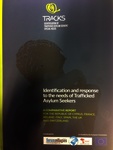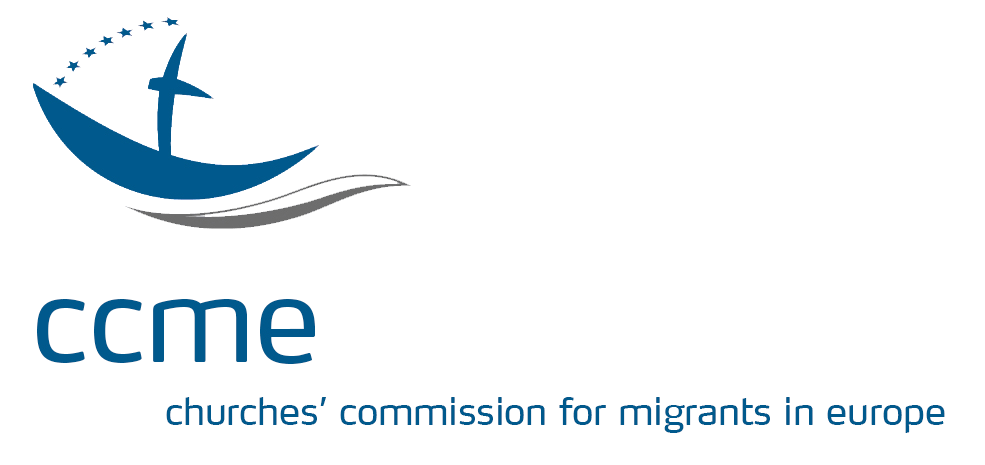Identification and response to the needs of Trafficked Asylum Seekers
 The project TRACKS aims to analyse the asylum-trafficking in human beings (THB) nexus through the prism of special needs of trafficked asylum seekers and to equip national asylum authorities and civil society organisations to tackle crosscutting issues (i.e. protection, housing, rehabilitation, psychosocial support as well as security).
The project TRACKS aims to analyse the asylum-trafficking in human beings (THB) nexus through the prism of special needs of trafficked asylum seekers and to equip national asylum authorities and civil society organisations to tackle crosscutting issues (i.e. protection, housing, rehabilitation, psychosocial support as well as security).
A Comparative Report “Identification and response to the needs of Trafficked Asylum Seekers” has been compiled, based on the findings from Cyprus, France, Ireland, Italy, Spain, Switzerland and the UK where the project has been implemented. A Summary Report and a “European Toolbox” have been produced by project partners.
Countering contemporary forms of slavery, trafficking in human beings
Parallel to stricter immigration controls trafficking in human beings has become more visible in the past two decades as a new form of slavery. While joint efforts of authorities and non-governmental organisations and churches against this international crime have produced some results, trafficking for forced labour is still a rather unknown field. The human rights of trafficked persons are generally still insufficiently protected.
Therefore, priorities will be:
- Trafficking in women
- Trafficking for forced labour
We know what the next steps are…
Interview with CCME ExCom member Elena Timofticiuc on the 1st EU Forum on Labour Trafficking
From 17th to 19th October 2013, CCME organised the first EU Forum on labour trafficking in Vilnius. Read a few thoughts of Elena Timofticiuc, participant and CCME board member
Q: EU Forum on labour trafficking – this sounds very broad, so what was the forum about?
The forum mainly dealt with cases of bigger groups being trafficking for forced labour in countries across Europe. We heard about cases in which bigger groups, sometimes hundreds of persons are exploited like the ones of the tree worker, which were exploited in the Czech state forests...read more
Developing agreed methodology of identification and referral for trafficking for labour exploitation: guaranteeing the victims the access to protection
Trafficking in human beings is an ever-increasing phenomenon all around the world. In the last decade, the acknowledgment of trafficking by the international community as a modern form of slavery and as one of the most cruel human rights violations has led to the development of several instruments and measures to combat this crime as well as to provide protection and assistance to its victims.
However, for many years, the debate and policies have mainly addressed issues concerning trafficking for …read more: English, French, Italian, Romanian, and Spanish.
2011
2011-03-05-Publication: Combating Trafficking for forced Labour in Europe. March 2011:• Czech; • Greek; • Italian; • Romanian
2011-01-28 – HEARING: COMBATTING TRAFFICKING FOR FORCED LABOUR; European Parliament Brussels (ASP 3E2), 9th February 2011
2010
2010-10-11: European Churches initiate review of “first steps” against forced labour trafficking
2010-06-10 NGO Statement and Recommendations on the occasion of the European Parliament Seminar on Combating and Preventing Trafficking in Human Beings – the way forward…
2010-03 Trafficking for Forced Labour in Europe: Emerging Challenges – Emerging Responses. A collection of emerging best practice examples.
2008
2008-10-13 Trafficking Conference agenda (Protaras)
2008-10-13 Input Papantonou – CCME’s Action & Networking against Trafficking
2008-10-11 CCME Pos – against trafficking
2008-10-09 CCME Press-rel – Trafficking-impossible for Church to remain passive
2008-03-31 CCME Press-rel – Romanian Orthodox Patriarch – integrated approach combating modern slavery
2008-02-01 NGO letter on Trafficking in Human Beings
2004
2004-04-05 CCME Press-rel – Churches exchange with Europol on combating trafficking in women
2004-03-04 CCME Conf after Brussels declaration & challenges of Anti-Trafficking
2004-03-01 CCME Press-rel – Review of progress in combating trafficking in women (Int Conf)
2004-01-01 Chr Com – illegal immigration, trafficking, external borders
2003
2003-12-10 CCME Press-rel – day of Human Rights-Churches + MEPs-uniting forces against trafficking
2003-09-12 CCME Press-rel – Re-Integration of victims of Trafficking needs legal + financial commitment
2003-06-23 CCME Press-rel – Fight Trafficking to address complicity of society (Visit Athens)
2003-04-10 CCME Press-rel – Christian Networks join forces against Trafficking in Women (Prague)

